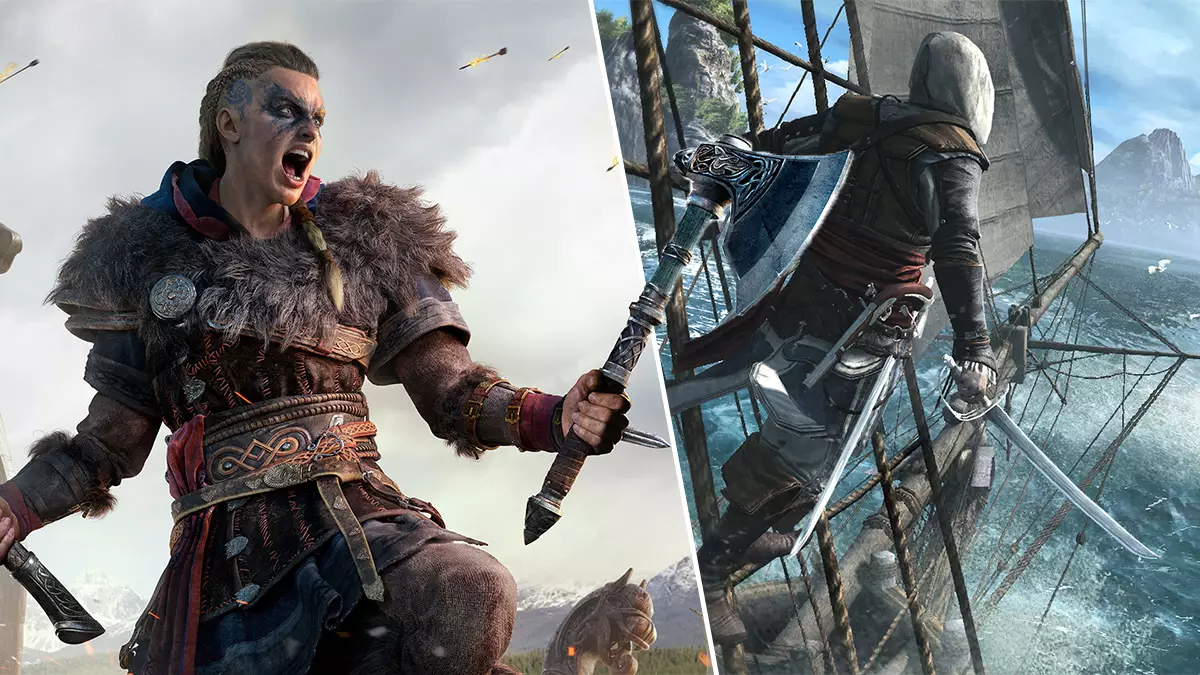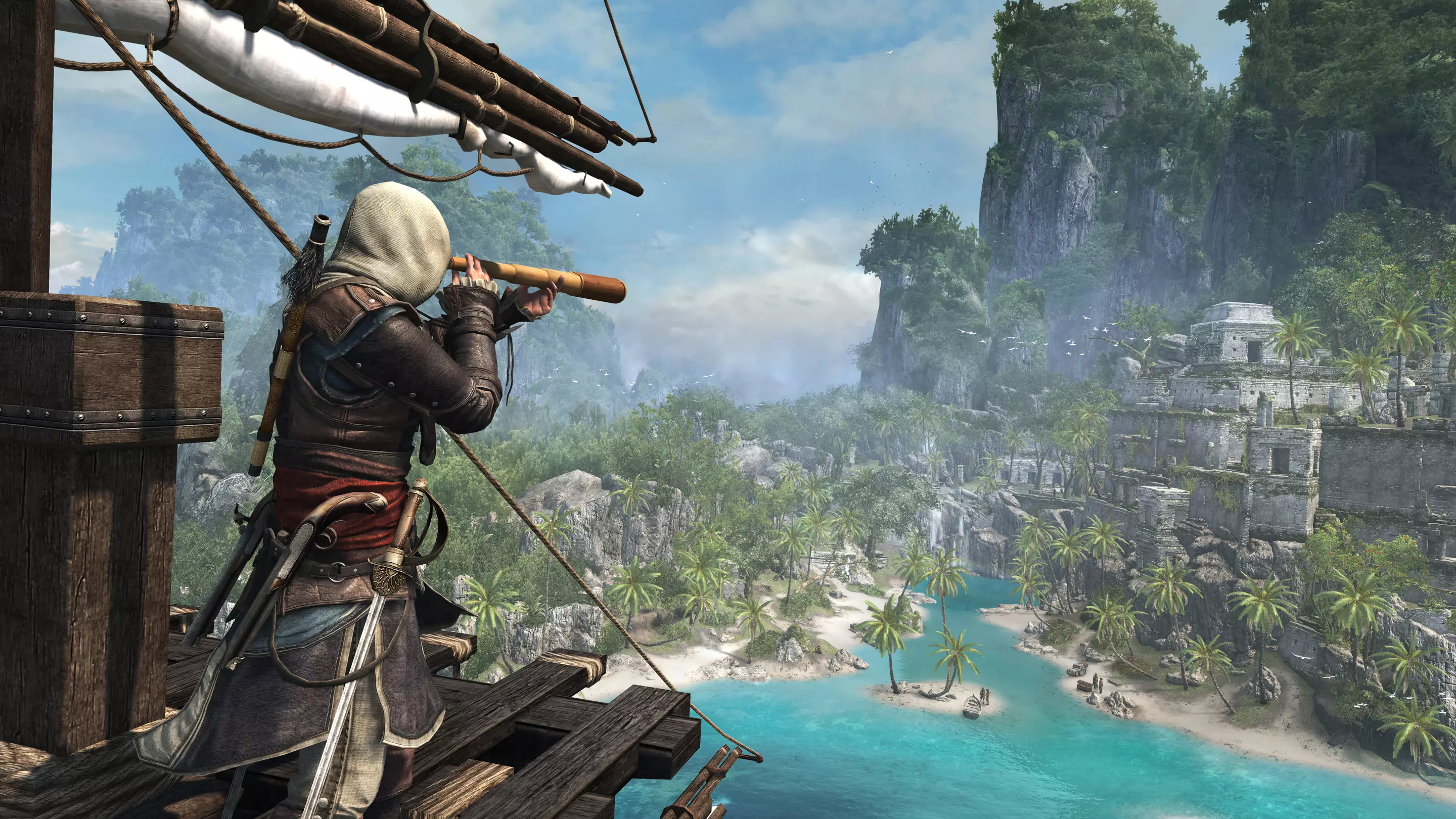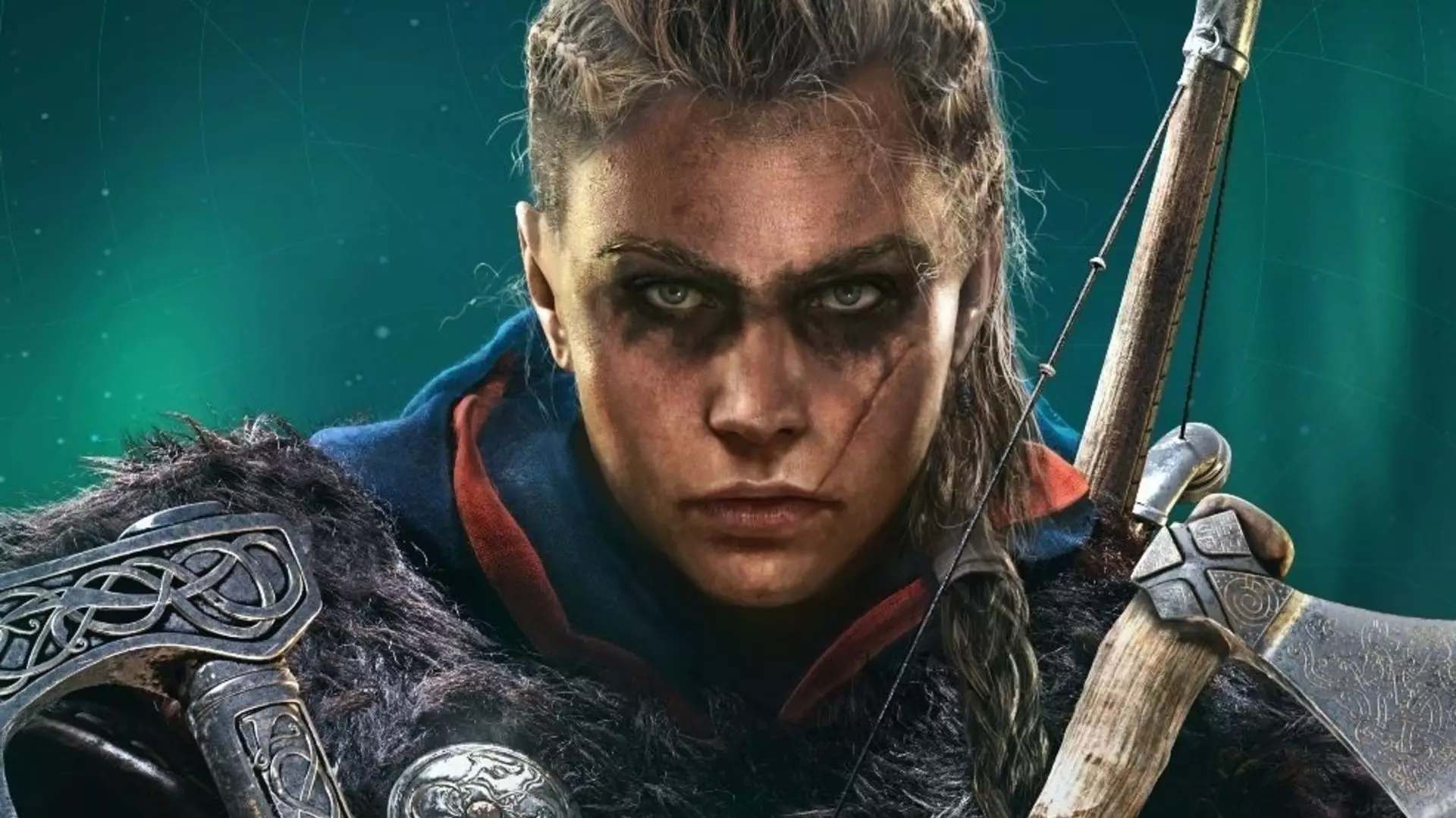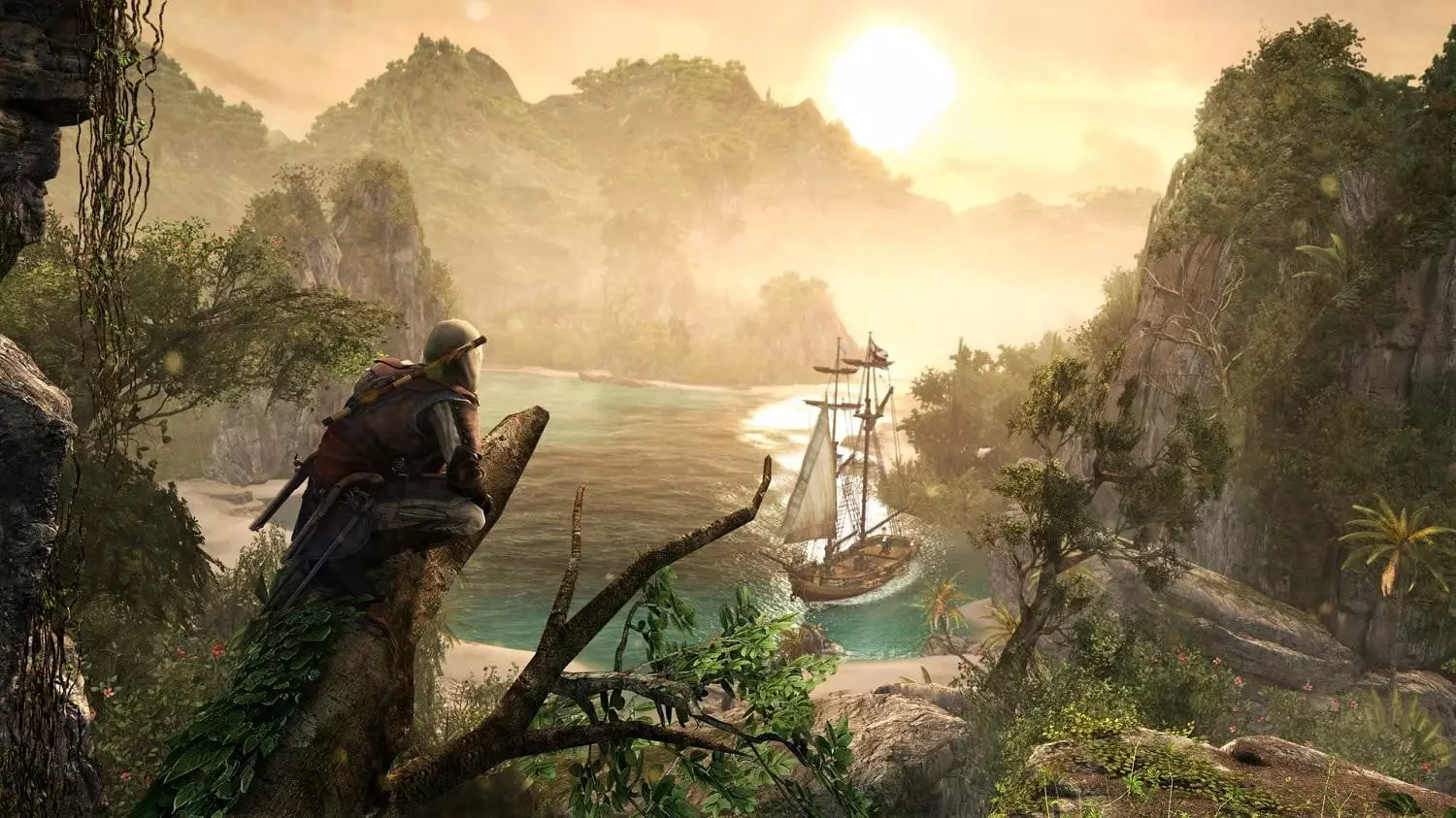
Words: Stacey Henley
The worst thing about the Assassin's Creed games is being an assassin. Let's just get that out the way now. It wasn't always the case; Altair and Ezio's stories both do a great job of exploring life as an assassin, blending stealth with more action packed gameplay, and folding in both historical fiction with modern day sci-fi. Ever since then though, it's been a bit downhill.
Post-Ezio, Assassin's Creed games don't seem like they really want to be Assassin's Creed games, but also can't let go of being an Assassin's Creed game. They resent their own stealth sections, but still force them upon you. They offer a wide range of combat approaches, yet still fetishise the hidden blade as the perfect weapon. They've drastically cut down on the Animus' screen time and importance, yet cranked up the sci-fi weirdness.
Advert

Black Flag, the black sheep
Because of all this, I've firmly believed ever since it released that Assassin's Creed IV: Black Flag is the series' best offering. Easily the best post-Ezio title. Edward Kenway, the game's central character, wasn't really an assassin at all, he was just a pirate who found the assassin stuff washed up on a beach. He doesn't care about being an assassin, or the creed, or anything the games are known for, he's just a pirate who shoots people or slices them open with a cutlass more often than he messes around with a hidden blade.
Advert
I'm not bothered about the Animus, I'm not bothered about the Assassin's Guild, just pick a historical era and let me run about. Black Flag provided that, but despite being a huge breath of fresh air, other games have retreated back to the confines of assassinhood, and keep making the same mistakes over and over again.
Enter Assassin's Creed Valhalla. In Eivor, the game finally offers us another protagonist who couldn't really care less about whatever being an assassin means. It throws all the usual Assassin's Creed stuff on the floor and stomps on it. Finally, Black Flag is no longer the black sheep of the Assassin's Creed family. In Valhalla, it has a worthy sequel.
Valhalla is far from perfect. As well as following in Black Flag's footsteps, it picks up bad habits from both Assassin's Creed: Origins and Odyssey, creating a too big open world which you access at too slow a pace. It also suffers from some traditional Ubisoft problems, with endless towers to climb and a superstar female protagonist cut entirely from the marketing. After allegations that the female protagonists of both Origins and Odyssey had their roles pared down in the Ubisoft boardrooms, it feels like lightning has struck a third time.

While you were drinking ale, I studied the blade
Advert
Despite all that, Valhalla feels like the first time Assassin's Creed has remembered that it once made Black Flag. There's a refreshing freedom to it, a joyful carnage found in both the combat and in the stories peppered around England and Norway. In one absolutely stellar sidequest, you meet a poor man who can't get it up anymore. The solution, eventually, is for you to burn his house down, because his first time with his wife happened during a pillage. The flames leave him, and I quote, "as hard as Heimdall's Tower."
Valhalla still has some features we typically, for better or worse, associate with Assassin's Creed as a whole. Even Black Flag had that though, with a few sections asking you to trail spies or climb up masts. What really makes Valhalla feel like a Black Flag sequel is the lack of reverence for being an assassin, and the extra freedom that affords the game.
The string of early Ezio titles aside, Assassin's Creed doesn't really do traditional sequels, but Valhalla follows Black Flag in a more thematic sense. From the moment Eivor strapped the hidden blade on the top of the wrist (making it just a blade), I knew Eivor and Edward were two ale-loving kindred spirits.
It's not simply the way they wear the blade. Eivor is the first not-really-an-assassin assassin we've had since Kenway, while Valhalla's humour hits the same silly and occasionally coarse tone of the Golden Age of Piracy. It just lets you run about being a viking, in the same way Black Flag let you run about being a pirate. There's Assassin's Creed stuff in there - there has to be, it's in the name - but it doesn't intrude on your time as being a viking anywhere near as much as it has in other recent entries.
Advert

We are sailing...
When it comes to comparing Black Flag and Valhalla, we can't not talk about boats too. I've avoided the topic until now, mainly because I think this is one of the few areas where Valhalla seems a little bit afraid to copy Black Flag too much. Naval combat was a highlight of Black Flag, but Valhalla tries to do its own thing and doesn't really stick the landing.
Advert
However, away from the cannonball infused battles, another thing Black Flag nailed was simply the sensation of sailing. With the sea shanties and the stories and the sapphire sea, just floating around the waves was one of the hidden pleasures of Black Flag. While the low bridges of England can occasionally make sailing in Valhalla more trouble than it needed to be, once you get a few Jomsvikings aboard, your ship will once again be full of songs and stories and the camaraderie of the sea.
All things considered, there are still notable differences between Black Flag and Valhalla. Both reflect how the Ubisoft of their development cycle envisioned an open world, and with fights built upon firearms and axes respectively, they each approach combat differently. However, in a series which has been pulling itself in a different, more meticulous and complex direction in recent years, Valhalla is the first game brave enough to take inspiration from the series' best and most unusual game. Vikings and pirates are two of the most chaotic, ale-soaked, violent groups of fighters history has ever produced, yet both groups also share an internal sense of community, a brotherhood earned with bloodshed. It's the same brotherhood that now binds Edward and Eivor, the two black sheep of the Assassin's Creed family. Hopefully wherever we go next is bold enough to pick up where Eivor left off.
Follow the author on Twitter at @FiveTacey and GAMINGbible at @gamingbible.
Featured Image Credit: UbisoftTopics: Assassin's Creed: Valhalla